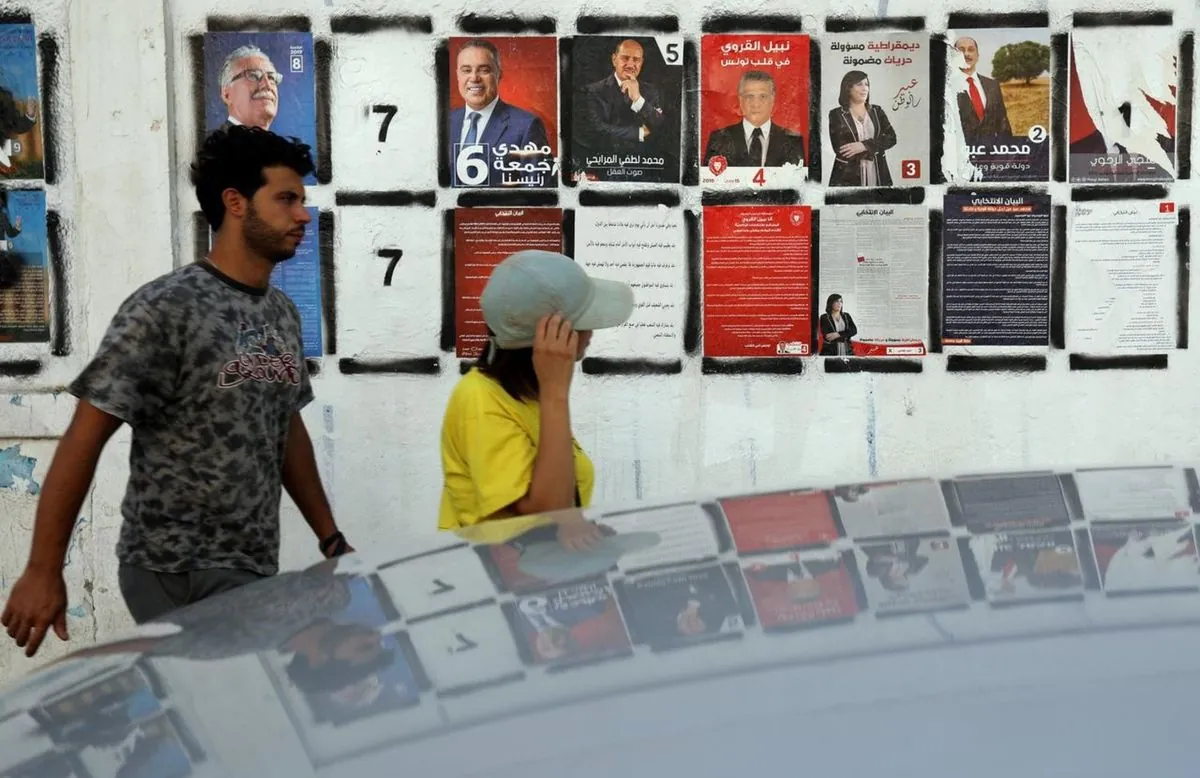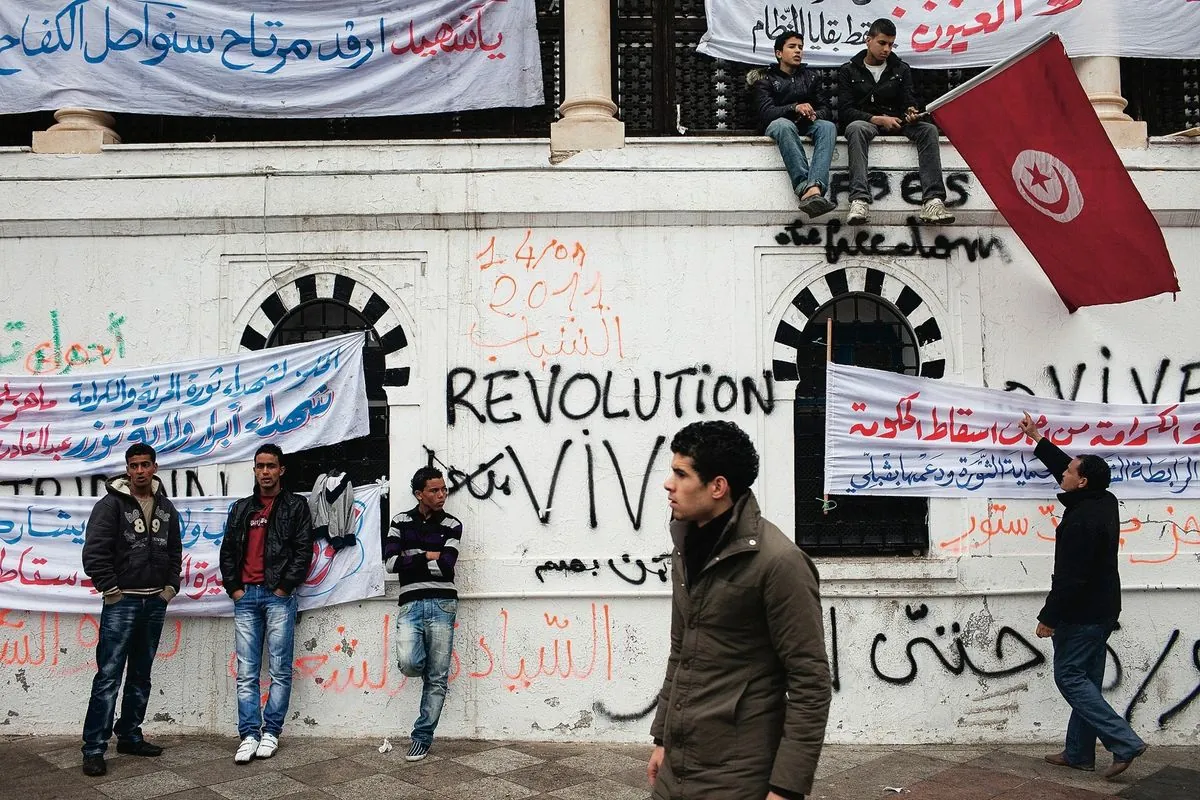Tunisia's Presidential Race Narrows to Three Amid Controversy
Tunisia's electoral authority approves only three candidates for the upcoming presidential election, with one immediately arrested. The decision sparks concerns about democratic backsliding in the North African nation.

In a controversial move, Tunisia's electoral authority has approved only three candidates for the upcoming presidential election scheduled for October 6, 2024. This decision has raised concerns about the state of democracy in the North African nation, which was once hailed as the birthplace of the Arab Spring.
The approved candidates include incumbent President Kais Saied, businessman Ayachi Zammel, and former parliamentarian Zouhair Maghzaoui. However, shortly after the announcement, Zammel was taken into custody over allegations related to falsifying voter signatures, according to his legal representative.
This development has further intensified the debate surrounding the electoral process in Tunisia, a country of approximately 12 million people. The electoral commission's decision contradicts a recent ruling by Tunisia's highest administrative court, which had ordered the reinstatement of three previously disqualified candidates.

The commission's president, Farouk Bouaskar, cited legal deadlines and insufficient endorsements or financial deposits as reasons for not implementing the court's decision. This move has been criticized by opposition parties and civil society organizations as politically motivated.
Tunisia, the first Arab country to abolish slavery in 1846 and grant women the right to vote in 1959, has been experiencing political turbulence since Saied assumed office in 2019. The president has taken steps to consolidate power, including suspending parliament and rewriting the constitution, actions that have alarmed observers concerned about democratic regression.
Despite these concerns, Saied continues to enjoy significant public support. Many Tunisians appreciate his populist rhetoric targeting corruption and foreign interference. However, political participation has waned, as evidenced by the mere 11% turnout in last year's local elections.
The upcoming election campaign, set to begin on September 14, 2024, will unfold against the backdrop of Tunisia's rich history and diverse landscape. From the ancient ruins of Carthage to the Sahara Desert covering 40% of its territory, Tunisia offers a unique blend of cultural heritage and natural beauty.
As the country prepares for this crucial vote, the international community watches closely, hoping that Tunisia can navigate these challenges and maintain its status as a democratic pioneer in the region. The outcome of this election could have far-reaching implications for the future of democracy in North Africa and beyond.
"The decision to limit the number of candidates raises serious questions about the fairness and inclusivity of our electoral process. We call for transparency and adherence to democratic principles to ensure the will of the Tunisian people is truly represented."


































